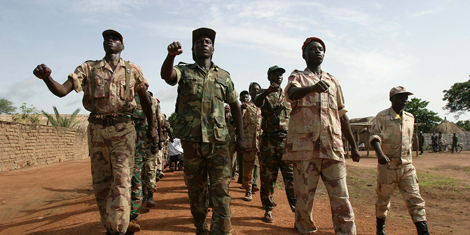
Mediation Perspectives is a periodic blog entry that’s provided by the CSS’ Mediation Support Team and occasional guest authors. Each entry is designed to highlight the utility of mediation approaches in dealing with violent political conflicts. To keep up to date with the Mediation Support Team, you can sign up to their newsletter here.
The challenge of how to deal with armed groups after a conflict ends is one of the many problems facing mediators and negotiators working toward a peace agreement. Such arrangements are critical because mistrust between armed opponents, the challenge of restoring state authority, and the hazards of peace process derailment are not easily overcome. Disarmament, Demobilization, and Reintegration (DDR) programs, which attempt to shepherd former combatants into peacetime civilian roles, are one approach. However, DDR rarely provides channels for former combatants to enter the government’s security forces. Instead, this is the focus of the subject of this blog, military integration initiatives.




